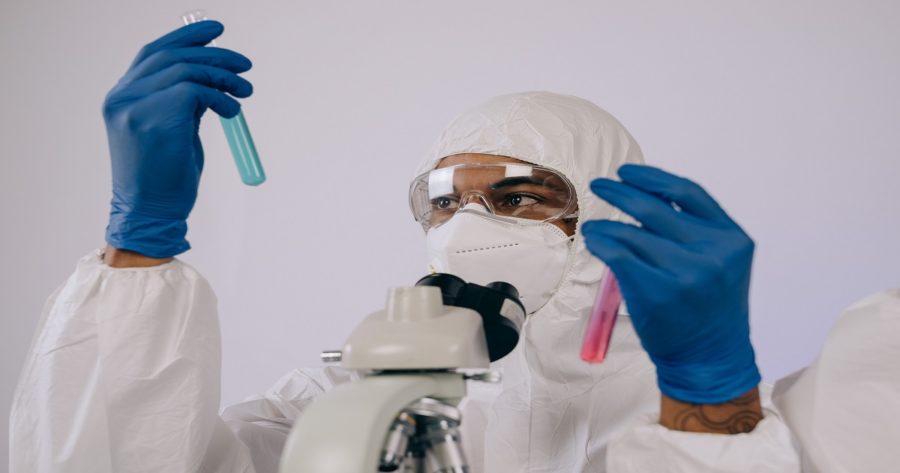There is no known cure for the deadly disease
Marburg virus disease (MVD), formerly known as Marburg hemorrhagic fever, is a severe, often fatal illness that causes severe viral hemorrhagic fever in humans. MVD was initially detected in 1967 after two large outbreaks in Germany and Serbia associated with laboratory work using African green monkeys imported from Uganda.
Two fetal cases of MVD were reported from Ghana on June 28, 2022, and confirmed on July 1. The first was a 26-year-old male and the other a 51-year-old male. Both presented with fever, general malaise, bleeding from the nose and mouth, and subconjunctival bleeding. The source of the infection is unknown, with a preliminary investigation finding no common denominators between cases. This would be the first-ever outbreak of MVD in Ghana.
“Health authorities have responded swiftly, getting a head start preparing for a possible outbreak,” says Dr. Matshidiso Moeti, WHO Reginal Director for Africa in an official press release. “This is good because, without immediate and decisive action, Marburg can easily get out of hand. WHO is on the ground supporting health authorities and now that the outbreak is declared, we are marshaling more resources for the response,” he said.
MVD spreads through human-to-human transmission via direct contact (through broken skin or mucous membranes) with infected people’s blood, secretions, organs, or other bodily fluids, and surfaces and materials contaminated with these fluids. Fatality rates have ranged from 24 to 88 percent in past outbreaks depending on the virus strain and case management.
Two to 21 days are required for the incubation period of MVD. The symptoms begin suddenly with a high fever, severe headache, and severe malaise. Muscle aches and pains are common symptoms. Severe watery diarrhea, abdominal pain, cramping, nausea, and vomiting can begin on the third day. Patients at this stage are described as “ghost-like” with deep-set eyes, expressionless faces, and extreme lethargy. Severe hemorrhagic manifestation begins between days 5 and 7, with fatal cases having some form of bleeding from multiple areas of the body. In fatal cases, death occurs between days 8 and 9 after symptoms appear, usually caused by severe blood loss and shock.
There is no vaccine or antiviral treatment for this virus, but supportive care and treatment of specific symptoms improve the survival rate. There are monoclonal antibodies (mAbs) under development and antivirals that have been used in clinical studies for Ebola Virus Disease that could also be tested for MVD or used under compassionate use/expanded access.
In May 2020, The European Medicines Agency granted marketing authorization to Zabdeno (Ad26.ZEBOV) and Mvabea (MVA-BN-Filo). against EVD. The vaccine could potentially protect against MVD, but its efficacy has not been proven in clinical trials.
“MVD is a very rare disease in people. However, when it occurs, it has the potential to spread to other people, especially healthcare staff and family members who care for the patient. Increasing awareness in communities and among healthcare providers of the clinical symptoms of patients with MVD is critical. Better awareness can lead to earlier and stronger precautions against the spread of the Marburg virus in both family members and healthcare providers.” Said Dr. Patrick Kuma-Aboagye, Director-general of Ghana Health Service
Risk reduction focuses on reducing bat-to-human transmission by avoiding exposure to fruit bat colonies and reducing human-to-human transmission in the community by taking safety precautions when dealing with infected patients. Gloves and PPE should be worn when taking care of patients at home and regular hand washing.
Various preventive measures are needed, including prompt, safe, and dignified burial of the deceased, identifying those in contact with someone infected with Marburg and monitoring their health for 21 days, segregating the healthy from the sick, and providing care to the confirmed patient.
The WHO recommends that male survivors of Marburg virus disease practice safer sex and hygiene for 12 months from onset of symptoms or until their semen twice tests negative for Marburg virus. Contact with body fluids should be avoided, and washing with soap and water is recommended.









